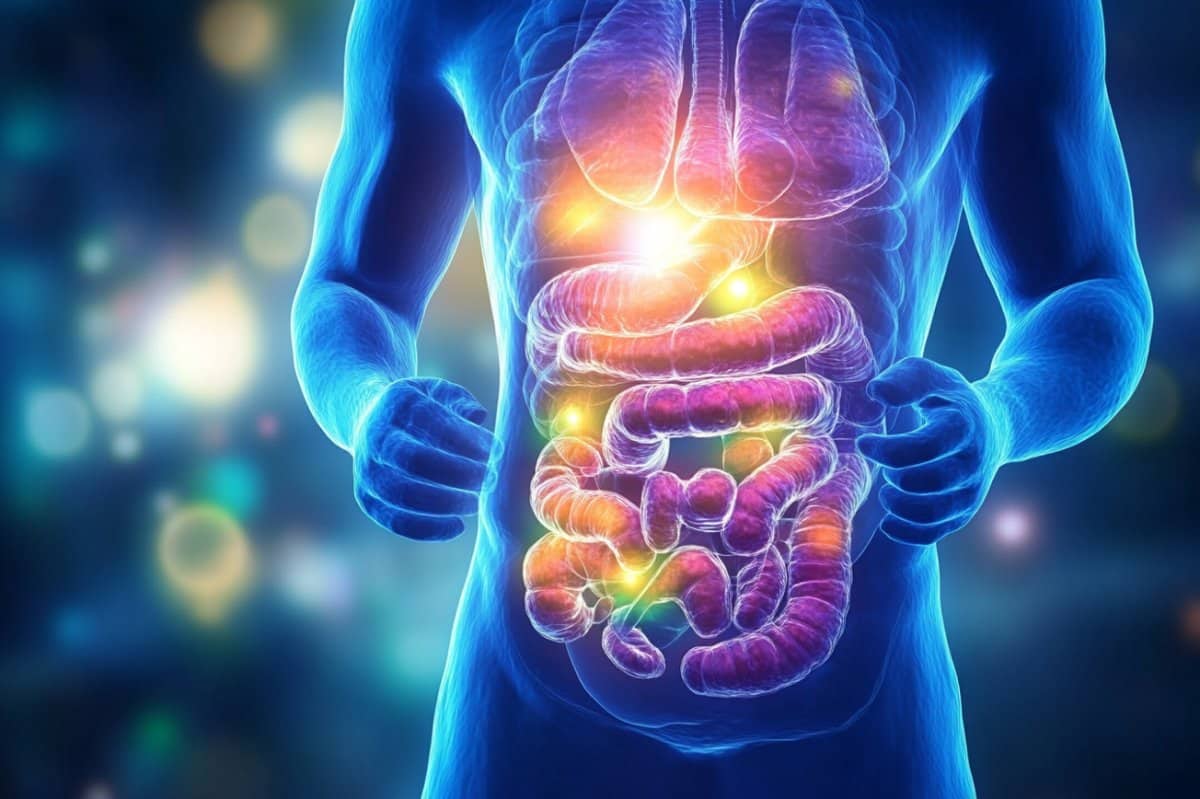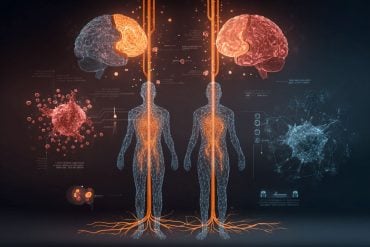Summary: A new study shows that combining heavy alcohol use with burn trauma causes severe disruptions in the gut microbiome, leading to inflammation and a weakened gut barrier. Within a day of injury, beneficial bacteria plummet, harmful microbes rise, and levels of butyrate—a key anti-inflammatory compound—drop significantly.
This microbial chaos fuels immune overactivation, as fecal matter from injured subjects triggered high inflammatory responses in intestinal cells. Encouragingly, pre-treatment with butyrate reduced this inflammation, pointing to a potential therapeutic path for patients suffering from alcohol-related trauma.
Key Facts:
- Microbial Breakdown: Alcohol and burns together deplete good gut bacteria and SCFAs like butyrate.
- Inflammation Spike: Post-injury gut samples triggered strong immune responses in lab tests.
- Therapeutic Hope: Butyrate supplementation blunted inflammation, suggesting a new treatment angle.
Source: Loyola University
What happens in your gut after a night of heavy drinking and a severe burn injury? According to a new study, it might involve more than just pain and discomfort.
Researchers at Loyola University Chicago Health Sciences Division have shown that alcohol combined with burn trauma throws the intestinal microbiome into chaos, leading to inflammation and impaired gut barrier function.
Credit: Neuroscience News
The work uncovers the microbial shifts and metabolic fallout of these injuries, highlighting a potential path forward: replenishing lost microbial metabolites might help protect the gut—and the rest of the body—after trauma.
Burn injuries on their own are already a serious challenge, but when alcohol intoxication is involved, outcomes become significantly worse. Patients admitted to the hospital with both conditions have higher rates of sepsis and mortality than those with burns alone.
Previous work has shown that alcohol can slow down intestinal motility and damage the gut lining. Combined with the physiological stress of a burn, this leads to a breakdown in the gut barrier, allowing bacteria and their inflammatory byproducts to leak into the bloodstream.
The researchers found major disruptions in the gut microbiome one day after alcohol and burn injury. Bacterial diversity dropped significantly, especially in the small intestine. Beneficial microbes were depleted, while populations of Proteobacteria—a group that includes many potentially harmful species—surged.
These microbial shifts were accompanied by a drop in short-chain fatty acids (SCFAs), particularly butyrate. SCFAs are crucial compounds produced by gut bacteria. They nourish intestinal cells, help maintain the integrity of the gut lining and regulate inflammation.
Butyrate serves as a primary energy source for intestinal epithelial cells and is known to promote anti-inflammatory responses. In alcohol and burn injury, butyrate levels were significantly lower than in healthy controls.
To determine whether this imbalance had functional consequences, the researchers took fecal samples from the injured host and exposed them to intestinal cells in the lab.
The results were striking: fecal matter from the injured group triggered much higher levels of interleukin-6 (IL-6), a pro-inflammatory cytokine, in the intestinal cells compared to samples from uninjured host.
This inflammatory response was strongly correlated with the abundance of Enterobacteriaceae, a bacterial family that had flourished after the injury.

Encouragingly, when the researchers pre-treated the cells with butyrate, the IL-6 response was blunted. This suggests that the lack of butyrate in the injured gut plays a direct role in amplifying inflammation. Butyrate fuels intestinal cells and seems to keep inflammatory responses in check, acting as a kind of microbial brake on the immune system.
Although these findings were observed in an experimental model, the implications for human health are compelling. Many burn patients arrive at the hospital with alcohol in their systems.
Understanding how these conditions interact to harm the gut could help explain why such patients fare worse. If similar disruptions in the microbiome and SCFAs occur in patients, restoring those microbial metabolites could become a new therapeutic strategy.
The study also highlights the importance of timing. The microbial changes and inflammation were observed just one day after injury, emphasizing how quickly the gut environment can shift.
This underscores the need for rapid interventions after trauma—perhaps through SCFA supplementation, prebiotics that encourage the growth of SCFA-producing bacteria, or targeted probiotics.
The researchers note that future studies will need to explore whether boosting butyrate levels in vivo can reduce inflammation and improve outcomes.
They also point out that standard post-burn care does not currently address the intestines or gut microbiome, overlooking an organ system that could offer therapeutic opportunities for burn victims.
While the gut microbiome has gained attention in recent years for its role in everything from obesity to mental health, this research adds a new layer.
In the context of acute trauma, microbial health might influence recovery and resilience. If so, protecting and restoring the gut could become a key pillar of post-injury care.
About this alcohol use and microbiome research news
Author: Mashkoor A. Choudhry
Source: Loyola University
Contact: Mashkoor A. Choudhry – Loyola University
Image: The image is credited to Neuroscience News
Original Research: Open access.
“Bacterial dysbiosis and decrease in SCFA correlate with intestinal inflammation following alcohol intoxication and burn injury” by Mashkoor A. Choudhry et al. eGastroenterology
Abstract
Bacterial dysbiosis and decrease in SCFA correlate with intestinal inflammation following alcohol intoxication and burn injury
Background
Patients intoxicated at the time of burn experience increased rates of sepsis and death compared with that observed in similarly sized burns alone. We sought to characterise changes in the intestinal microbiome and short-chain fatty acids (SCFAs) following alcohol intoxication and burn injury and to determine whether these changes are associated with intestinal inflammation.
Methods
10–12-week-old C57BL/6 male and female mice were subjected to ethanol intoxication and a 12.5% total body surface area scald burn injury. The following day, mice were euthanised and faecal contents from the caecum and small intestine (SI) were harvested for 16S sequencing for microbial analysis and caecum contents underwent high-performance liquid chromatography mass spectroscopy to assess SCFAs.
Results
The intestinal microbiome of ethanol burn (EB) mice exhibited decreased alpha diversity and distinct beta diversity compared with sham vehicle (SV). EB faeces were marked by increased Proteobacteria and many pathobionts.
EB caecum faeces exhibited a significant decrease in butyrate and a downward trend in acetate and total SCFAs. SCFA changes correlated with microbial changes particularly in the SI.
Treatment of murine duodenal cell clone-K (MODE-K) cells with faecal slurries led to upregulation of interleukin-6 (IL-6) from EB faeces compared with SV faeces which correlated with levels of Enterobacteriaceae. However, supplementation of butyrate reduced faecal slurry-induced MODE-K cells IL-6 release.
Conclusion
Together, these findings suggest that alcohol and burn injury induce bacterial dysbiosis and a decrease in SCFAs, which together can promote intestinal inflammation and barrier disruption, predisposing to postinjury pathology.







